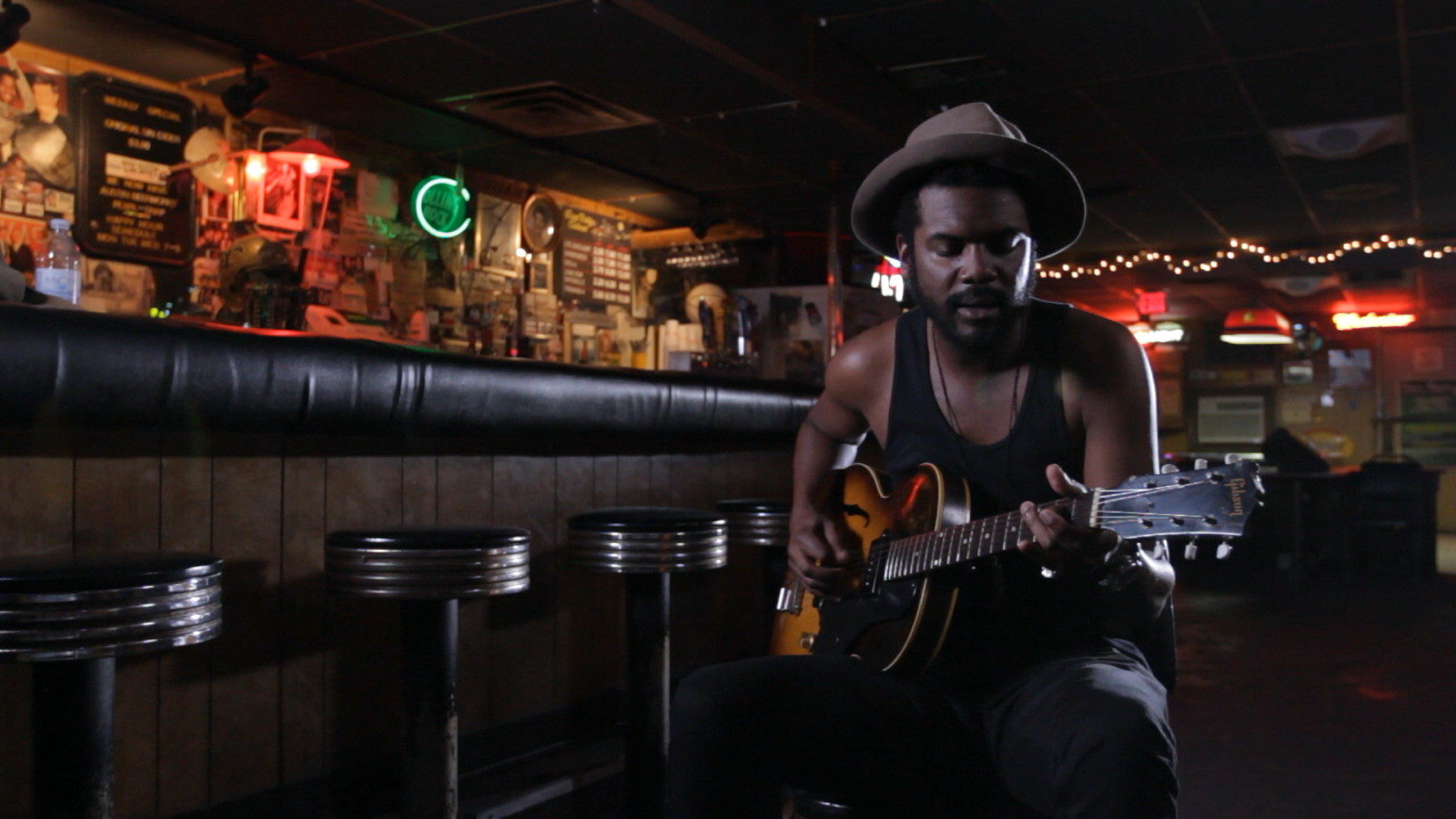If I can speak for most people, I think they’d say they know nothing really about The Blues. That doesn’t limit it to The Blues as an art form, as America’s truest musical art form that gave birth to all modern music actually, but the visual of the Blues – elderly bent over Black men playing guitars, heavy set women singing, and Jim Crow devastating them all while White men watch them reverently – is embedded quite bleakly into our consciousness. Then when you connect the Blues with the Civil Rights Movement, the depressive nature, despite the historical importance, is polarized.
If you think that way about the Blues, well, first get over yourself, and then watch the new documentary Two Trains Runnin’ (but don’t confuse it with the similarly named August Wilson play). Using the requisite and freshly fascinating historical footage, enhancing the story with quite a bit of sly animation, and connecting it all with interviews and musical performances by Gary Clark Jr., Lucinda Williams, Buddy Guy, Valerie June, and the North Mississippi Allstars, among others, this new film dashes any conundrums you may have of the Blues and creates what is easily one of the freshest takes on the African-American struggle during the Civil Rights Movement in over a decade.
Who thinks of this? Who connects the quest of young white dudes searching for mysterious Blues musicians to the brutal Freedom Rider murders of Cheney, Schwerner, and Goodman? Only a sensitive documentarian like Sam Pollard, best known as a longtime editor for Spike Lee but also a proven producer of films like Four Little Girls and director of the acclaimed documentary Slavery of Another Name, could bring brightness to those tumultuous times and not bog down this thorough history lesson with too pure annals, but sprinkle it with enough energy to make it accessible.
Allow me to break it down for you.
History is as much about dates as it is about the happenings. And in June of 1964, hundreds of college students traveled to Mississippi to join the civil rights movement starting the eventually named Freedom Summer. Concurrently, two groups of young white men (including guitarist John Fahey and Dick Waterman, the great champion of the Blues) also traveled to Mississippi on separate missions, unbeknownst to one another, each in search of a legendary blues musician lost to the ravages of time.

Folk music grew in prominence in the few years prior to 1964, and with that the search for the pioneers of American musical culture flourished. But many of these artists recorded albums here and there, and because of a variety of factors, be they economics, racism, or straight up change of lifestyle, they abandoned regular pursuit of being full-time musicians. Not much has changed in that regard. However, the musicians Skip James and Sun House had not been heard of publicly for decades, so with the rediscovery of their music, these young men had to find out whether they were still alive, how they created such powerful music, and whether still could perform such feats. And so these men drove separately from California and New York City to do so.
Yet only white guys unacquainted with America’s South can drive through Mississippi unaware of the danger that presented. With the Ku Klux Klan and police forces out to stop the Freedom Summer initiatives of voter registration and rural education of Blacks from being successful, the journey took on unprecedented danger. But that’s where the drama of this doc makes the film work so well. It’s not that you feel necessarily frightened for these young White men, but you do want them to succeed at these impossible tasks.
Regardless of their success or failure, there is little denying the transformation of what occurred in Mississippi, and in America, during that summer. What Pollard and his collaborators, which include the rapper/actor Common as narrator and executive producer, have however accomplished is proving that, as the director personally admits, a more complete understanding of “who we are as Americans, what brought us together and what divides us.” The story of Sun House and Skip James, of James Chaney, Andrew Goodman, and Michael Schwerner, of the countless men and women who shared and sacrificed their lives for their art and for the betterment of man, is the soul of America, even when this country fails to live up to the ideals it was built upon.
Two Trains Runnin’ begins its theatrical run this Friday, December 2nd at The Metrograph in New York City.
Two Trains Runnin’ trailer from Avalon Films on Vimeo.
Two Trains Runnin’
82 minutes | USA
Director: Sam Pollard
Writer and Producer: Benjamin Hedin
Executive Producers: Common and Derek Dudley
Featuring: Gary Clark Jr., Buddy Guy, Lucinda Williams, David Dennis, Robert Moses, Peter Guralnick, and Amanda Petrusich
Website: www.twotrainsrunnin.com

